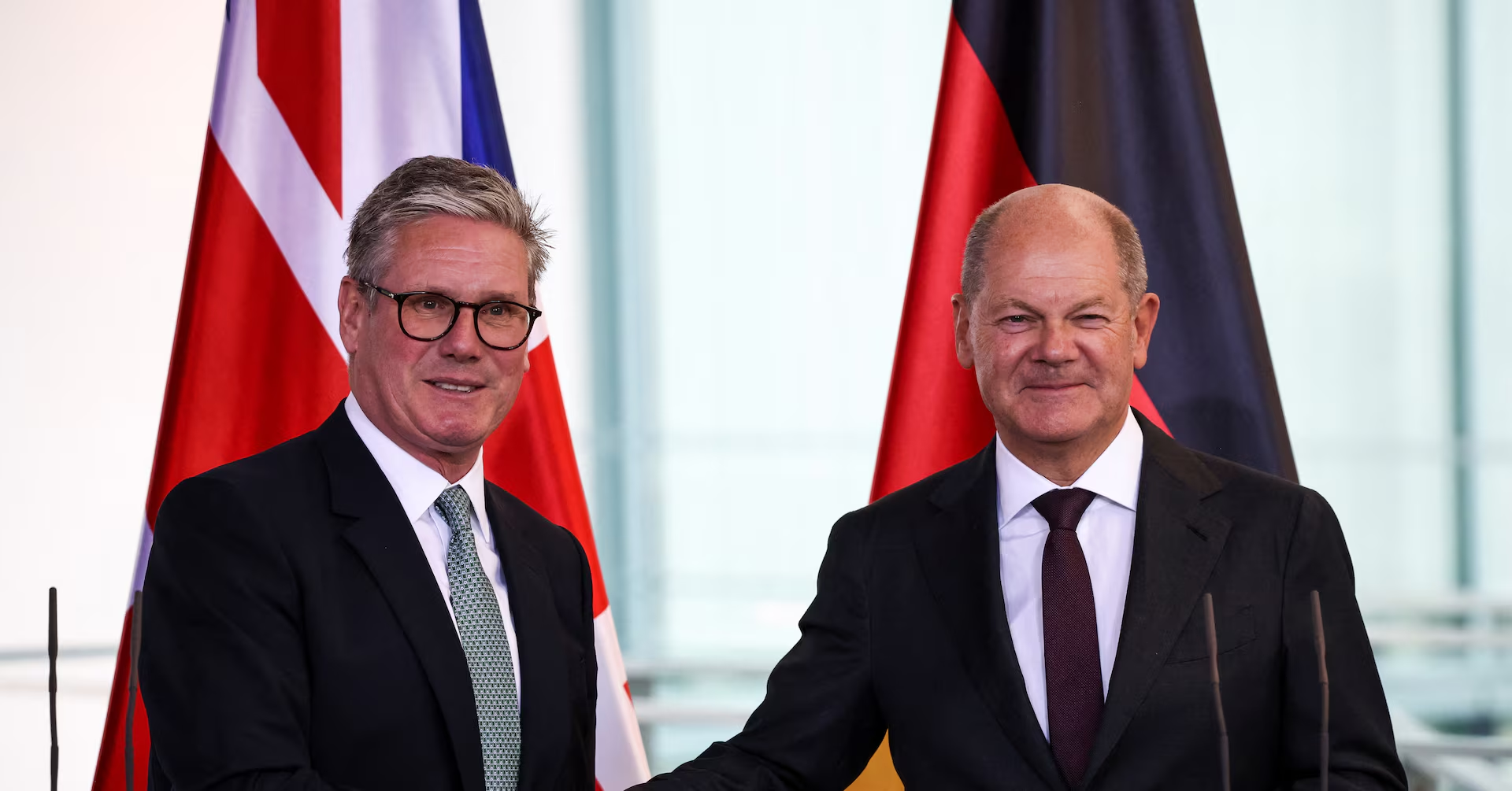LONDON — In a shocking move that could reshape the security landscape of Europe, the United Kingdom and Germany are set to finalize a treaty that includes a mutual assistance clause in the event of a threat to either nation. According to multiple sources, this agreement marks a significant shift in defense policy, underscoring the urgency of European nations to bolster their own security frameworks as the United States scales back its involvement in transatlantic defense alliances.
Germany"s Nuclear Ambitions Emerge
Prime Minister Keir Starmer and former German Chancellor Olaf Scholz laid the groundwork for this treaty in a joint declaration last summer, emphasizing the need for closer cooperation on peace, security, and economic growth. With the text nearing completion and a signing scheduled for July 17, the implications of this pact cannot be overstated. The treaty will include a defense chapter that builds on last year"s Trinity House Agreement, which states that any strategic threat to one country is interpreted as a threat to the other.
Shifting Power Dynamics in Europe
This mutual assistance clause effectively places Germany in a unique position, granting it a deterrent capability alongside both of Europe’s nuclear powers. German Chancellor Friedrich Merz has expressed a desire for European nations to establish a more cohesive security strategy, independent of American oversight. The ramifications of this treaty raise alarming questions about the future of NATO and the role of the U.S. within European defense strategies.
Pressure to Control Migration Amid Security Concerns
While the defense provisions are the most newsworthy aspect of the treaty, it will also address illegal migration, transportation, and research and innovation. The U.K. government, under pressure to reduce both legal and illegal migration, faces a complex challenge as it tries to balance its security needs with public sentiment. As reported by sources, Berlin has been a vocal advocate for liberalizing migration rules, particularly concerning young people seeking to move to Britain.
Youth Mobility Agreements Remain Elusive
Despite the ambitious agenda outlined in the treaty, concrete agreements on youth mobility will be left to negotiations at the EU level. The U.K. has struggled to reach a satisfactory arrangement in this area, reflecting broader tensions between the desire for a more open society and the political realities of immigration control. The failure to finalize these mobility agreements could alienate young people in both nations, stifling the potential for cultural exchange and collaboration.
\n\n
Berlin, Deutschland, 19.06.2024: Bundeskanzleramt: 105 ...
Political Implications for Starmer"s Government
The treaty comes at a time when Starmer’s government is grappling with domestic political pressures, including rising scrutiny over its immigration policies. The commitment to mutual defense may strengthen Starmer"s position within the Labour Party, but it could also provoke backlash from progressive factions that advocate for more humane immigration practices and prioritize social justice over militarization.
Calls for Transparency and Accountability
As the treaty"s details are being finalized, both the U.K. Foreign, Commonwealth and Development Office and the German Foreign Office have remained tight-lipped. A spokesperson from the German Foreign Office stated, “The treaty will deal with the entire range of our relations,” yet the lack of transparency around its implications raises concerns about accountability. The public deserves clarity on how this treaty will affect not only national security but also civil liberties and international relations.
Future of European Security Cooperation
As the U.S. withdraws from its traditional role as Europe’s primary security guarantor, the onus is increasingly on European nations to chart their own course. The impending treaty between the U.K. and Germany could serve as a template for future partnerships within Europe, but it also risks fostering an environment of competition rather than cooperation, particularly if other nations feel compelled to bolster their military capabilities in response.
This treaty represents more than just a defense agreement; it signifies a pivotal moment in European history where nations are reevaluating their alliances and security strategies. As the world watches, the stakes could not be higher for the future of peace and stability in Europe.

Starmer, Scholz seek reset in British-EU ties with bilateral ...


![[Video] Heavy clashes and gunfire reported in Baghdad, Iraq](/_next/image?url=%2Fapi%2Fimage%2Fthumbnails%2Fthumbnail-1768342239932-848qsh-thumbnail.jpg&w=3840&q=75)




![[Video] Gunfire between Iraqi security forces and Sadr militias in Baghdad](/_next/image?url=%2Fapi%2Fimage%2Fthumbnails%2Fthumbnail-1768343508874-4redb-thumbnail.jpg&w=3840&q=75)
